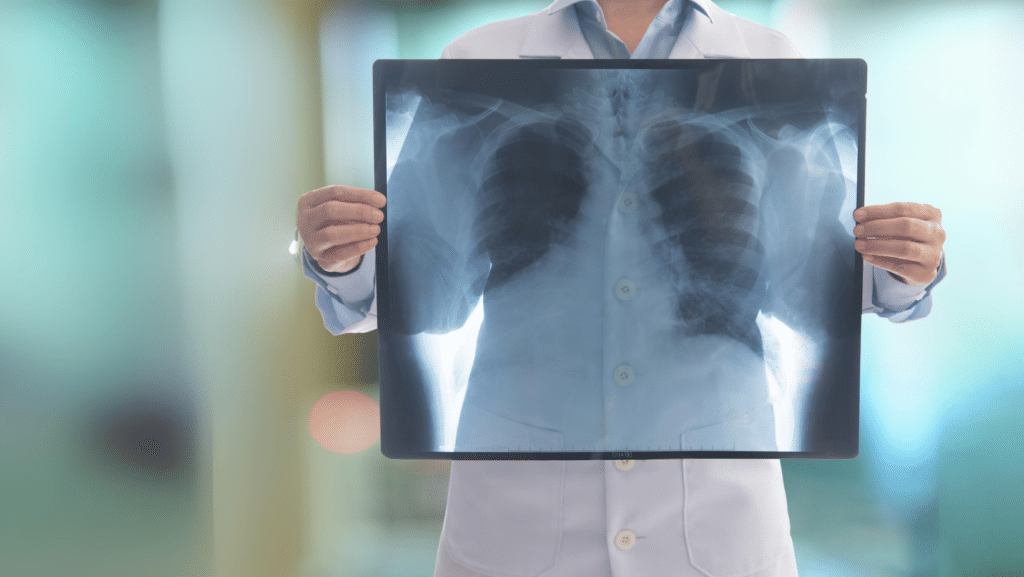Lung cancer remains the leading cause of cancer deaths in the U.S. Symptoms usually do not appear until cancer cells spread to other parts of the body and prevent other organs from functioning properly. At this point, it is harder to treat lung cancer.
Screening And Early Detection Is Key
Diagnosing lung cancer begins at the time of detection through lung cancer screening. Most commonly, doctors suspect somebody might have lung cancer when they see something on an imaging test such as a CT scan that looks like it could be a tumor.
Having a low-dose CT (LDCT) scan, an exam that takes multiple pictures of your lungs can detect tumors that lead to lung cancer before any symptoms appear. This means treatment could begin earlier giving you a better chance to BEAT it!
Who Should Be Screened?
If you meet the following criteria, you are considered to be at “high risk” for developing lung cancer and screening is recommended:
- 50-80 years of age (50-77 years of age for Medicare)
- Have a 20-pack-year history of smoking (this means 1 pack a day for 20 years, 2 packs a day for 10 years, etc.)
- AND, currently smoke or have quit within the last 15 years
A Note On Insurance Coverage
Medicare and many private health insurance plans cover lung cancer screening, but eligibility criteria vary depending on the plan you have. Many plans are currently updating their criteria to match new guidelines. Be sure to check your insurance plan for screening coverage and any additional procedures – there may be other costs associated even if the actual screening is free.
I'm High Risk, Now What?
If you are considered “high risk”, talk with your healthcare provider about getting a Low-Dose CT Scan, right here close to home. Once an order for the scan has been obtained, contact our Radiology Department to schedule your scan. It’s as simple as that.
Bunkie General Hospital is excited to keep expanding the services we provide right here in our community. For more information or questions about lung cancer screening, please call our Radiology Department at the number below.
Don’t wait. Screening for lung cancer may save your life!
This article is for informational purposes only and is not intended for medical diagnosis or treatment. Always consult your healthcare provider with any questions or concerns about your health.

